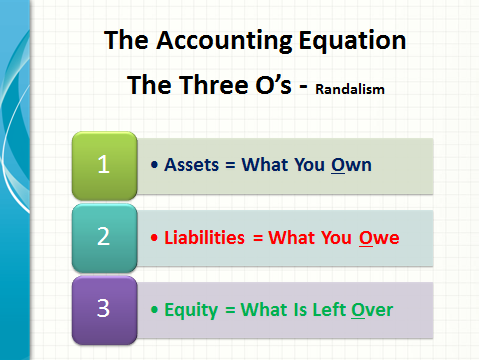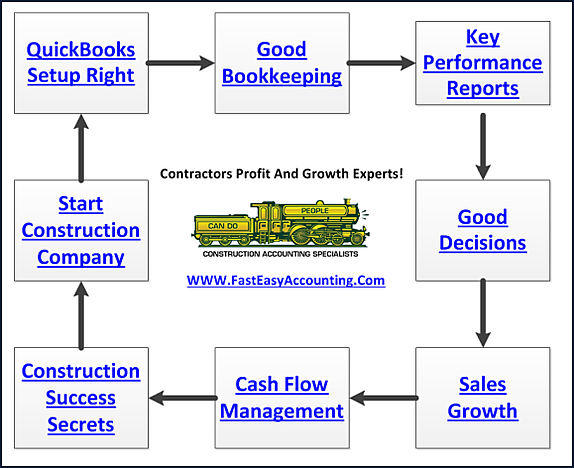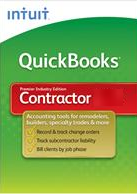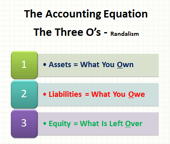Why Not All Three?
Tax Season Is Here and this is when most construction contractors think about getting their construction bookkeeping system in order so they can file their annual tax return for the previous year.
Each Branch Of Accounting serves a different function similar to how it works in construction. There are framers, rough carpenters and finish carpenters and all three works with lumber yet in most cases the skillsets to do everything are rarely found in the same person.
Three Carpentry Skillsets = Three Types Of People
Someone Skilled In All Three Areas Of Carpentry normally costs more and produce less per man-hour than a team of people with each individual skillsets. The issue is the super-skilled person tends to work at the pace which requires the most intense thought and skill and yet they expect to be paid the same rate for all three tasks which makes sense because they are super-skilled.
The Amount Most Contractors Can Afford To Pay someone for framing a wall and installing rolling joists and installing sheeting is normally less than someone who can stick frame a complex roof line, install a tricky set of stairs or build a cantilevered deck. Further up the skillset and money chain is the person who can turn expensive pieces of hardwood into a masterpiece of woodwork inside a multi-million dollar home or commercial space.
Three Accounting Skillsets = Three Types Of People
Bookkeepers are the lowest paid and the least skilled accounting specialist. Their primary function is to read the incoming paperwork (electronic and hard copy) and follow a pre-determined set of rules and guidelines to put each transaction where it needs to go in QuickBooks or Xero Accounting Online depending on which accounting software the construction contractor is using.
Accountants are the next highest paid accounting specialist. Their primary function is to review the transactions, reclassify some of them as needed and prepare payroll, monthly tax returns, quarterly tax returns, basic Profit & Loss Reports and Balance Sheet Reports.
Certified Public Accountants (C.P.A.) is the highest paid accounting specialist. Their primary function is preparing the annual tax return, performing audits and preparing Certified Financial Statements for bank loans and when a construction contractor requires them before issuing a construction bond.
Most C.P.A. accounting specialists can do all of the accounting for most standard businesses who only need regular accounting but not construction accounting. The reason is they cost too much or in the case of Construction Accounting they do more damage than good.
Contractors Accounting For Your Company
The Type Construction Company you own and the annual dollar volume of work you sell and install will determine what is best for you.
You Have Three Options:
#01 - Do it yourself. (Consider taking some college courses and get some training first.)
#02 - Hire someone part-time or full-time to work in your office and hope for the best.
#03 - Outsource to a professional construction bookkeeping services firm that has it all.
You Will Be Much Happier if you take a few minutes to read and understand the differences between regular accounting and construction accounting before making a decision.
Bad Construction Accounting which includes not having reliable financial reports is the leading cause for why construction companies fail.
In All Cases The Construction Company Owner sincerely believed they had the drive, guts, stamina and ability to "Power Through" any and all situations with "Brute Force" because in construction that is how 99.999% of all problems are solved.
They Only Really Understand the TRUE VALUE of a construction accounting system when they have plenty of free time to reflect and think. At that, sadly, is during the bankruptcy proceedings or at the auction where their entire construction company is being sold for pennies on the dollar to pay off some of the mountain of debt they accumulated.
These Are Harsh Words and I only say them with the utmost respect and sincerity that comes from someone who has seen far too many contractors go down that path. I only hope to guide your steps so that you may avoid the aforementioned experience. For those of you that have already gone down that path you are not alone and now with your new found wisdom perhaps you will be open to trying something different.
Construction Accounting Vs. Regular Accounting
All Accounting Uses The Accounting Equation
Business Owners - Need three basic reports, Cash, Profit and Equity
Cash On Hand................(Bank Balance - Un-cleared Checks) = Cash
Profit And Loss Report.........................(Sales - Expenses) = Profit
Balance Sheet Report..........................(Assets - Liabilities) = Equity
----------------------------------------------
Regular Accounting - Is roughly 80% of all accounting and Accounting for businesses in the world. So it is practically the only thing taught in schools, colleges and universities.
This Type Of Accounting Is Used - Where customers comes to the place of business or at most you ship or deliver a packaged product. In essence you are selling a product or a service from a fixed location.
Regular Accounting Has These Things In Common:
-
Sales - With 1-4 categories
-
Cost of Goods Sold - If they sell products with 1-4 categories
-
Expenses - Overhead required to maintain business operations
-
Breakeven - Is fairly easy to calculate because there is a direct relationship between income and expenses on every item. It is easy to run reports to determine which items are profitable and unprofitable and make adjustments quickly as needed.
----------------------------------------------
Construction Accounting - Is roughly 15% of all accounting and Accounting with manufacturing making up roughly 5%. So it is given very little attention in schools, colleges and universities. What little of it I have seen makes me very upset because I see the damage caused to contractors making management decisions on inaccurate reports. The System Is The Solution
Our Contractor Bookkeeping Services System Is A System
This Type Of Accounting Is Used - When the entire place of business is packed up and taken it to the customer. In essence you are selling, assembling, delivering and installing a customized product from a mobile shop on location. Think of it like shooting a movie on location without all the glamor, resources and money to go with it.
Construction Accounting Has These Things In Common:
-
Sales - With 1-10 categories
-
Cost of Goods Sold - Has Direct and Indirect Job Costs with 25 - 200 categories with 1,000s of sub categories
-
Expenses - Overhead is extremely complex because some expenses in regular Accounting are actually Cost of Goods Sold in construction accounting
-
Breakeven - Very difficult to calculate because most projects are one-of-a-kind custom jobs. Proactive contractors have systems and cost libraries with pre-priced assemblies for bidding which works in conjunction with Strategic Construction Accounting to provide management with progress invoicing, job costing and job profitability.
-
Job Costing and Job Profitability Reporting - Is similar to the Company Profit and Loss report except that it is specific to each particular job and has different expense codes. These reports in combination with the Five Key Performance Indicators are what help the contractor understand which projects to pursue and which ones to ignore. They form the foundation of a Business Process Improvement Plan and Construction Business Strategy.
Shown Below Is A Short List Of Titles commonly used for construction accounting and regular accounting. The list is intentionally short in order to make the point without being completely overwhelming.
Construction Accounting Titles = 233
Regular Accounting Titles = 115

We Never Cease Being Amazed - When we find someone who is doing the Accounting for a contractor and other unrelated industries and treats the construction business like any other business.
Example #1 - The contractor asks the bookkeeper "How much money did we make on the John and Mary Doe house remodel?" The bookkeeper generates a report showing $5,000 profit when in reality it was a ($15,000) loss! QuickBooks setup was done like every other Accounting business and $20,000 worth of transactions was put in the wrong category. In this case some direct costs and some indirect costs were misallocated and not assigned to the job.
Example #2 - The contractor asks the bookkeeper "How much money did we make on the Bob and Sally house remodel?" The bookkeeper generates a report showing ($5,000) loss when in reality it earned $5,000 profit! QuickBooks was setup wrong and $10,000 worth of transactions was put into the wrong category. In this case some overhead costs were classified as direct costs and assigned to the job.
The Inevitable Result Is - The contractor makes bad decisions on what to bid and not to bid on and eventually runs out of time and money.
For More Information See QuickBooks Setup For Contractors
Professional Accounting Services At An Affordable Price
Profitable Construction - Companies have known about the value of outsourced bookkeeping services for a long time and now you know about it too!
Thinking About Outsourcing Your Contractors Bookkeeping Services To Save Time And Money?
Click On The Button Below To Download A Free Guide
Need Help Now?
Call Sharie 206-361-3950
sharie@fasteasyaccounting.com
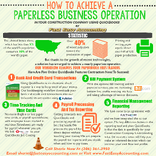
Xero Outsourced Construction Accounting Services
QuickBooks Outsourced Construction Bookkeeping Services
We Are Xero Accounting Experts Specializing In Construction Bookkeeping Services
About The Author:
 Randal DeHart, PMP, QPA is the co-founder of Business Consulting And Accounting in Lynnwood Washington. He is the leading expert in outsourced construction bookkeeping and accounting services for small construction companies across the USA. He is experienced as a Contractor, Project Management Professional, Construction Accountant, Intuit ProAdvisor, QuickBooks For Contractors Expert and Xero Accounting Specialist and Bill.Com Certified Guru. This combination of experience and skill sets provides a unique perspective which allows him to see the world through the eyes of a contractor, Project Manager, Accountant and construction accountant. This quadruple understanding is what sets him apart from other Intuit ProAdvisors and Xero accountants to the benefit of all of the construction contractors he serves across the USA. Visit http://www.fasteasyaccounting.com/randal-dehart/ to learn more.
Randal DeHart, PMP, QPA is the co-founder of Business Consulting And Accounting in Lynnwood Washington. He is the leading expert in outsourced construction bookkeeping and accounting services for small construction companies across the USA. He is experienced as a Contractor, Project Management Professional, Construction Accountant, Intuit ProAdvisor, QuickBooks For Contractors Expert and Xero Accounting Specialist and Bill.Com Certified Guru. This combination of experience and skill sets provides a unique perspective which allows him to see the world through the eyes of a contractor, Project Manager, Accountant and construction accountant. This quadruple understanding is what sets him apart from other Intuit ProAdvisors and Xero accountants to the benefit of all of the construction contractors he serves across the USA. Visit http://www.fasteasyaccounting.com/randal-dehart/ to learn more.
Our Co-Founder Randal DeHart - Is a Certified PMP (Project Management Professional) with several years of construction project management experience. His expertise is construction accounting systems engineering and process development. His exhaustive study of several leading experts including the work of Dr. W. Edward Deming, Michael Gerber, Walter A. Shewhart, James Lewis and dozens of others was the foundation upon which our Construction Bookkeeping System is based and continues to evolve and improve. Follow Randal on Google+









